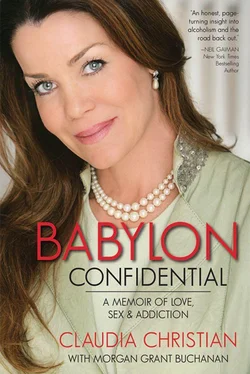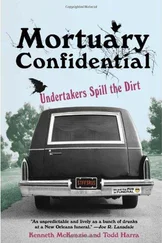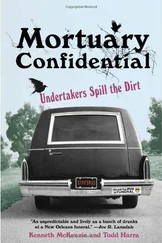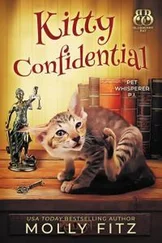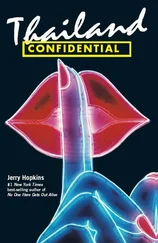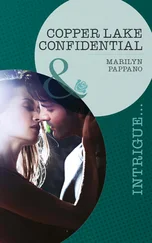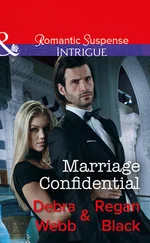Claudia Christian
BABYLON CONFIDENTIAL
A Memoir of Love, Sex, and Addiction
This book is dedicated to my mother, Hildegard.
Her constant love, fierce loyalty, and utter devotion have taught me that a mother’s love is truly incomparable. You are my best friend, my ballast, and the love of my life, Mama.
INTRODUCTION 
No one sets out to become an addict.
When you’re a kid and people ask what you want to be when you grow up, you imagine yourself as a doctor or a teacher (or if you’re five-year-old me, as an actress or the dictator of a small country), something that involves helping people and making the world a better place. You never consider that one day you’ll find yourself sitting at a bus stop on Coldwater Canyon as the morning traffic passes by, your hands shaking as you try to get the vodka-spiked orange juice past your lips. You don’t imagine that you’ll be close to death in a detox clinic with a total loss of muscle function, dehydrated and hallucinating. No parent gives you advice on how to survive the long walk to the liquor store when the cupboard is dry, though you develop strategies. You ration out sips of vanilla extract (35 percent alcohol) and pray that it will prevent a seizure. It keeps the contents of your stomach down and your shaking legs from buckling under you.
You don’t see that coming; I sure didn’t when I followed my dream to pursue an acting career in Hollywood. I’d left behind a family wracked by a tragic loss, was betrayed by the people I loved most, and survived a horrific rape. By the time I was eighteen, I was working on shows like Dallas and Falcon Crest and earning a six-figure income. The Hollywood I found myself caught up in was a whirlwind of beauty, wealth, and power. I made out with stars like George Clooney, Kelly LeBrock, and Rob Lowe in the hottest hotels and clubs in L.A. and New York, rejected William Shatner, traveled the world on private jets and super yachts with lovers like Dodi Fayed, and, in my breakthrough role as Commander Susan Ivanova on Babylon 5 , found millions of fans. My life has been one of extremes. The bounty of love and encouragement from family, friends, and fans is in sharp contrast to the unexpected mix of stalkings, shootings, and betrayals.
By the time I found myself at that bus stop, I was beyond caring if anyone recognized me. The self-aware Claudia was still there inside me, sitting in judgment in the back of my brain, but she wasn’t running the show. In the late 1980s I starred in The Hidden , a cult classic sci-fi movie. My character is possessed by an alien who steals human bodies to disguise its presence. That was the state I’d reached with my drinking; it was as if another person had taken me over and all I could do was look on like a bystander at a traffic accident.
It took me out of my house at 4 a.m., not caring that Ralph’s grocery store couldn’t start selling liquor until 6. It had no problem making me stand around for hours, killing time while I waited to buy (or if it wasn’t locked up—steal) the first bottle of the day.
I used to camp out at Ralph’s. I’d buy bottles of stuff I didn’t even like to drink—Grand Marnier, crème de menthe, Drambuie—just so I could tell the checkout clerks that I was making a soufflé and throw them off the scent. One time some pimple-faced kid, half my age, gave me a patronizing smile and said, “A little early for this, isn’t it?” He was right; I left the store mortified. I’d get in my car, twist the top off a beer and start drinking. After only a few gulps, I was throwing up all over the parking lot.
I was out of control and more than a little frightened. After finishing my bus stop screwdriver, I went home and looked at myself in the mirror. I barely recognized the puffy, yellow-eyed monster looking back at me. I’d even come to refer to the addiction that overtook me in those terms, as a monster, the monster within me. Even if one of my fans had come and sat down right beside me while I watched the morning traffic, I think my identity would have remained a secret.
I love life. I always have. If I can get that close to utter self-destruction, then there must be other people suffering the same or much worse. I’m writing this memoir for them.
And it’s no easy thing—opening the doors to my past—sharing painful and personal memories that I’d hesitate to confide to even my closest friends. But I feel that the story of how I rose to become a star and then came crashing back down to earth at the hands of my addiction is worth sharing—it contains a message of hope.
For over a decade, I lived in a shadow world, one which is easy to enter and not so easy to leave. But I did. I came back. I found a way out of a life filled with shame and despair.
Even at my worst, having gone from working as a successful actress to clinging to a bottle at that bus stop, I never gave up hope that I could reclaim the dream of using my talents to help other people.
PART ONE
Three Strikes


1. UNDER THE INFLUENCE
It was 1973. I was eight years old, and about to learn that fate can be a stone-cold bitch.
That was the year that Shell Oil ordered my dad to pack up our lives and move to Texas. I found myself in the sauna that is a humid Lone Star September with my parents, James and Hildegard, and my three older brothers, Patrick, Jimmy, and Vincent. In place of the beautiful autumn foliage that we’d left behind in Connecticut, Houston greeted us with shrubs, flatlands, and mosquitoes. None of us were happy about leaving our home back East. There was a palpable tension in the air. My mom had stopped eating and had lost thirty pounds; she’d had a premonition that something terrible was going to happen.
Less than six months later, we would return to Connecticut, having suffered a blow that would continue to impact us until it eventually destroyed our family.
Before the move to Houston, I grew up in Westport and Weston, Connecticut. That was where we were at our happiest. I would tag along when my brothers built snow forts and tree houses and was appointed the unofficial fourth boy, unless they needed someone to gross out. Then I would revert to being their little sister and be forced to watch while they fed live mice to their pet snakes.
Patrick, my oldest brother, wanted to be Hawkeye from The Last of the Mohicans . He beaded things and worked with suede. He used to find dead animals and skin them for his projects. He even made his own moccasins. In the past the Paugusset tribe occupied the land near where we lived, and Pat would lead us in the hunt for old flint arrowheads that were still scattered around the woods.
Some little girls fantasize about being princesses or models. When I read stories about the Pilgrims and their problems, I used to side with the Indians and hope that one day I’d be carried away by a chief to live with his tribe.
Patrick was suitably impressed when, at age five, I landed my first big role: playing Chief Massasoit in a school play. This was a revelatory experience for me. I had three rowdy brothers—I could barely get a word in edgewise—but when I stood on the stage, everyone was quiet, their attention completely focused on me. When I delivered my heartfelt Thanksgiving monologue, I saw adults in the audience listening intently with tears in their eyes, and it astonished me that I could affect them on that emotional level. After that experience, I was hooked. I auditioned for as many plays as I could. The desire to connect with others in that meaningful way, to bring people with me, out of their everyday lives and into another space as I perform, that’s exciting and powerful. It has sustained me in my career for over thirty years.
Читать дальше
